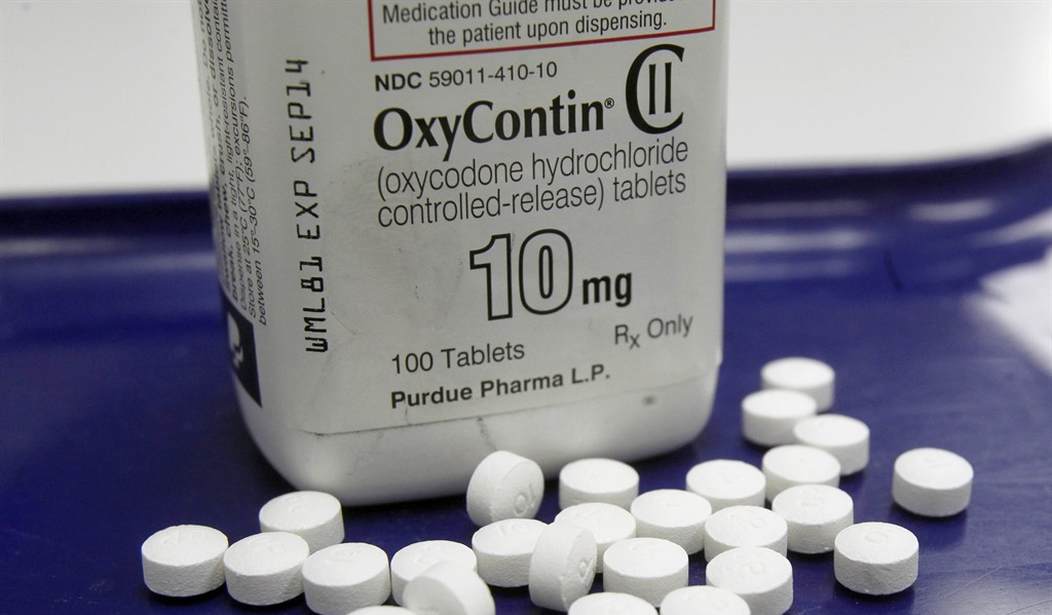Barack Obama’s former Chief of Staff Rahm Emanuel infamously stated that “you never want a serious crisis to go to waste. And what I mean by that is it’s an opportunity to do things that you’d think you could not do before.”
The Obama administration followed this principle in the worst possible way: as an excuse to ruthlessly manufacture crises so that they could do all sorts of damaging things to the country. But when a crisis is manufactured by someone else, Emanuel’s point stands: crises do create political will for actions that would previously be impossible. Even more so when the people who caused the crisis look guiltier and guiltier the more and more information comes out.
Such is the case with the pharmaceutical industry in the aftermath of the still raging opioid crisis. As I have written repeatedly, there is every indicator Pharma companies induced that crisis entirely out of desire to profit from often low income, low information people who they purposefully set out to get addicted to opioids. They did this because of systematic incentives to prescribe medications over which they held both legal and de facto monopolies, and which thus would provide a steady stream of profit with enough addicts. Moreover, it looks as if they did everything a normal drug dealer would do to attain that objective.
And I do mean everything. Recently, a series of whistleblower lawsuits revealed shocking allegations about just how far pharmaceutical sales reps were willing to go to pressure doctors to prescribe their medications, with the apparent full encouragement of their employer, the pharma company Insys. As reported by the Daily Caller, these sales representatives were pushed to sexually entice, and sometimes even have actual sex with doctors in order to gain their cooperation. They were encouraged to fete the doctors with trips to fancy restaurants, shooting ranges and, naturally, strip clubs. It is unclear whether cigars were lit with hundred dollar bills during these alleged outings, or if Insys’s CEO secretly calls himself “Heisenberg,” but if the allegations are true, who would be surprised?
Recommended
Now, in the interest of fairness, let’s admit that these allegations are as-yet unproven in court. Let us also admit that if whistleblowers came forward with such accusations against most major companies, they would be met with shock and quite a lot of healthy skepticism.
Unfortunately, in the case of pharma companies, the skepticism is very difficult to maintain, given their past record of behavior. We already know that pharma bribes Hollywood studios to promote their drugs through TV sitcoms. Why not bribe doctors directly as well?
…Well, in the case of Insys, they apparently did do that. And there are lawsuits pending against them on behalf of several states for their trouble. So the question becomes, if we believe that the company would bribe doctors financially, is it really a stretch to imagine they’d allow, or even encourage, sex to enter the picture?
Now, again, in the interest of fairness, Insys looks to be an extreme bad actor, even in the universe of Pharma companies that contributed to the opioid crisis, such as Purdue Pharmaceuticals, the makers of Oxycontin. And if even one half of the allegations against Insys are true, they will almost certainly be forced to cough up quite a lot of money.
But this is, again, not the point. Bad behavior by one company is often the canary in the coal mine for systematic incentives that exist across the entire sector. And even if other companies have the ethical and practical good sense not to resort to such extreme sales tactics, the fact remains that the incentive is there.
Why? Well, start with the fact that patented drugs are legal monopolies that Pharma has every excuse to try to sell as aggressively as possible for as long as the monopoly is protected by law, and to keep those monopolies going as long as possible, regardless of merit. Add in the fact that Pharma has any number of ways to bully competitors out of the markets for their drugs once their patents expire, a fact which Congress still has yet to fix, though it has tried in fits and starts. And, finally, consider that, as President Trump has pointed out, the US subsidizes the rest of the world’s much stricter restrictions on drug prices abroad, meaning that they have every reason to desperately over-market specifically to Americans. Ultimately, Pharma bears the blame for the opioid crisis, but these bad policy choices certainly didn’t help.
Fortunately, because of the opioid crisis, DC now has an excuse to fix these bad policy choices. After all, it’s like Emanuel said: a good crisis is an opportunity to do things that you’d think you could not do before.
























Join the conversation as a VIP Member